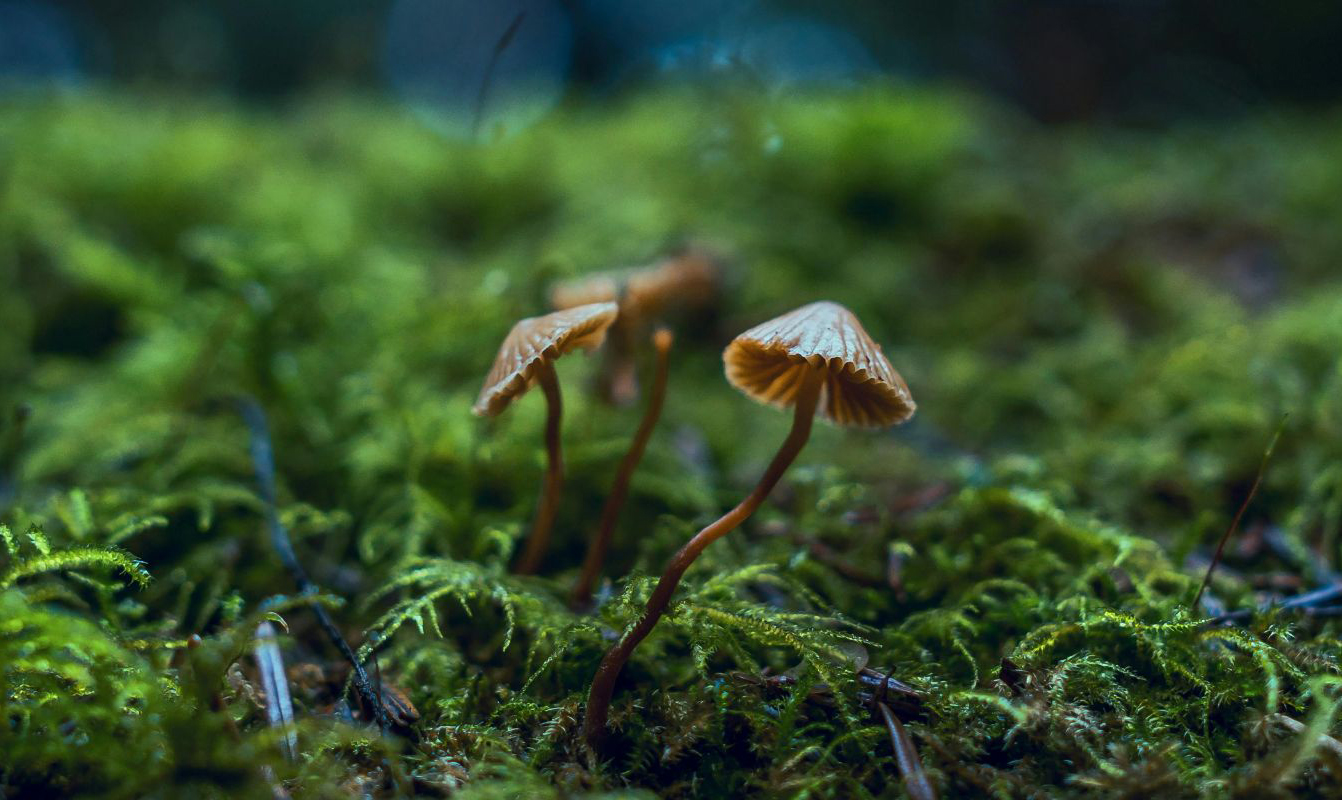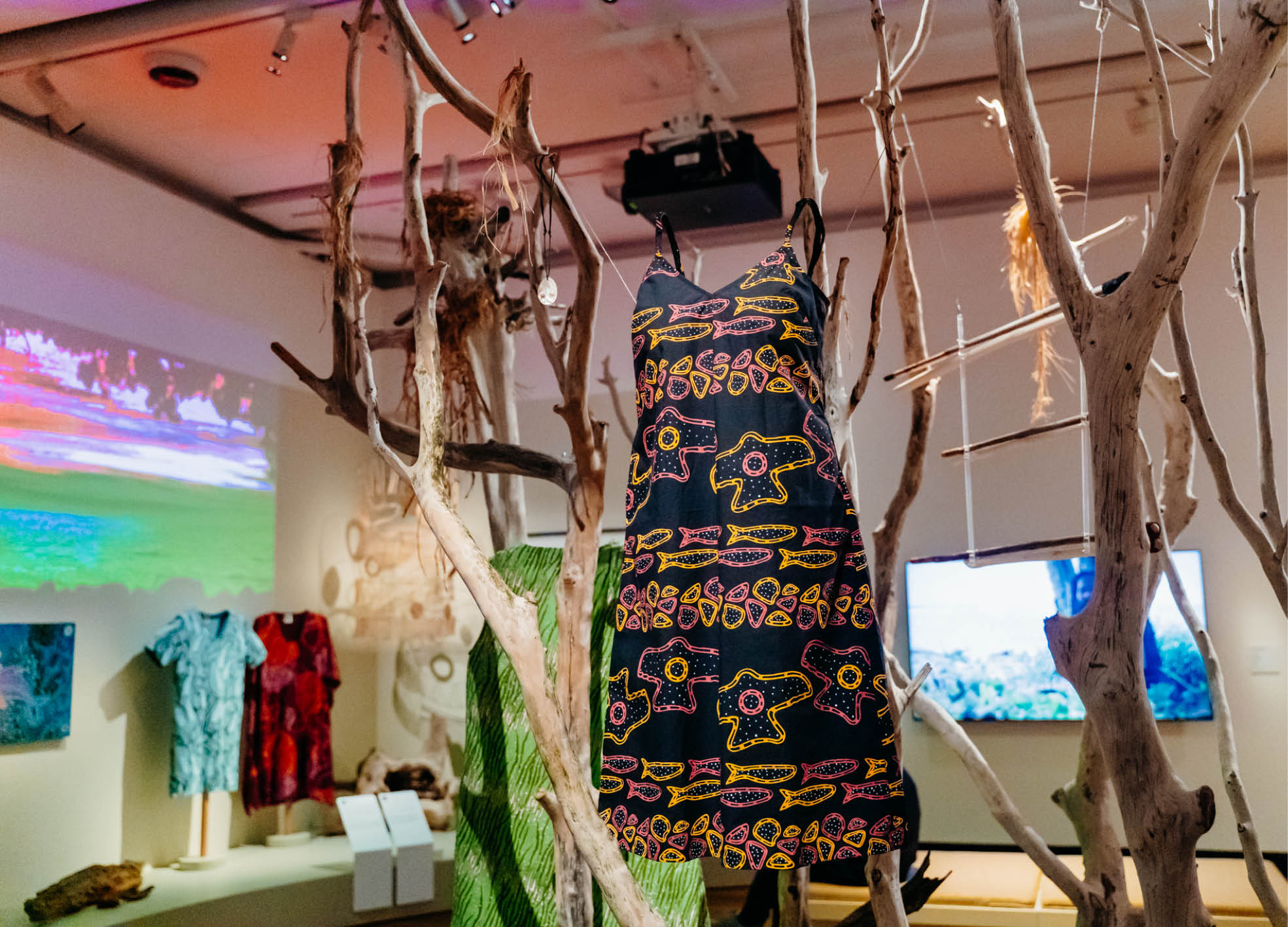It’s a Climate Emergency
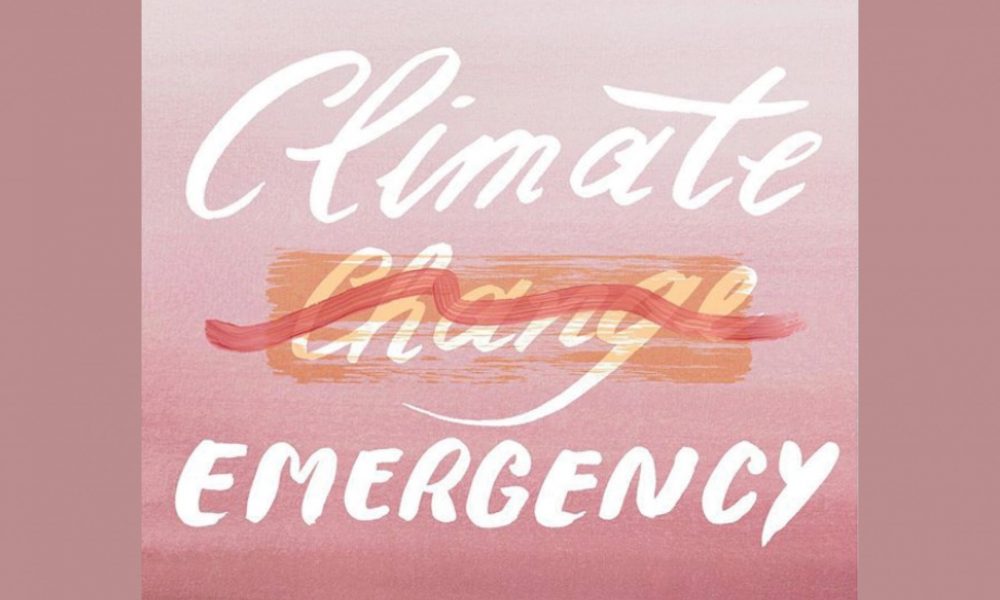
- Words by Peppermint
Sisters Sam and Karina Seljak founded Seljak Brand – a recycled wool blanket line produced in a resolutely circular manufacturing process. As guests at Al Gore’s recent Climate Reality Leadership Corps training in Brisbane (alongside Peppermint Founder and Editor-in-Chief Kelley), they’re using their platform to call for action at every level – here, they set out the action points we can all take on the current climate emergency.
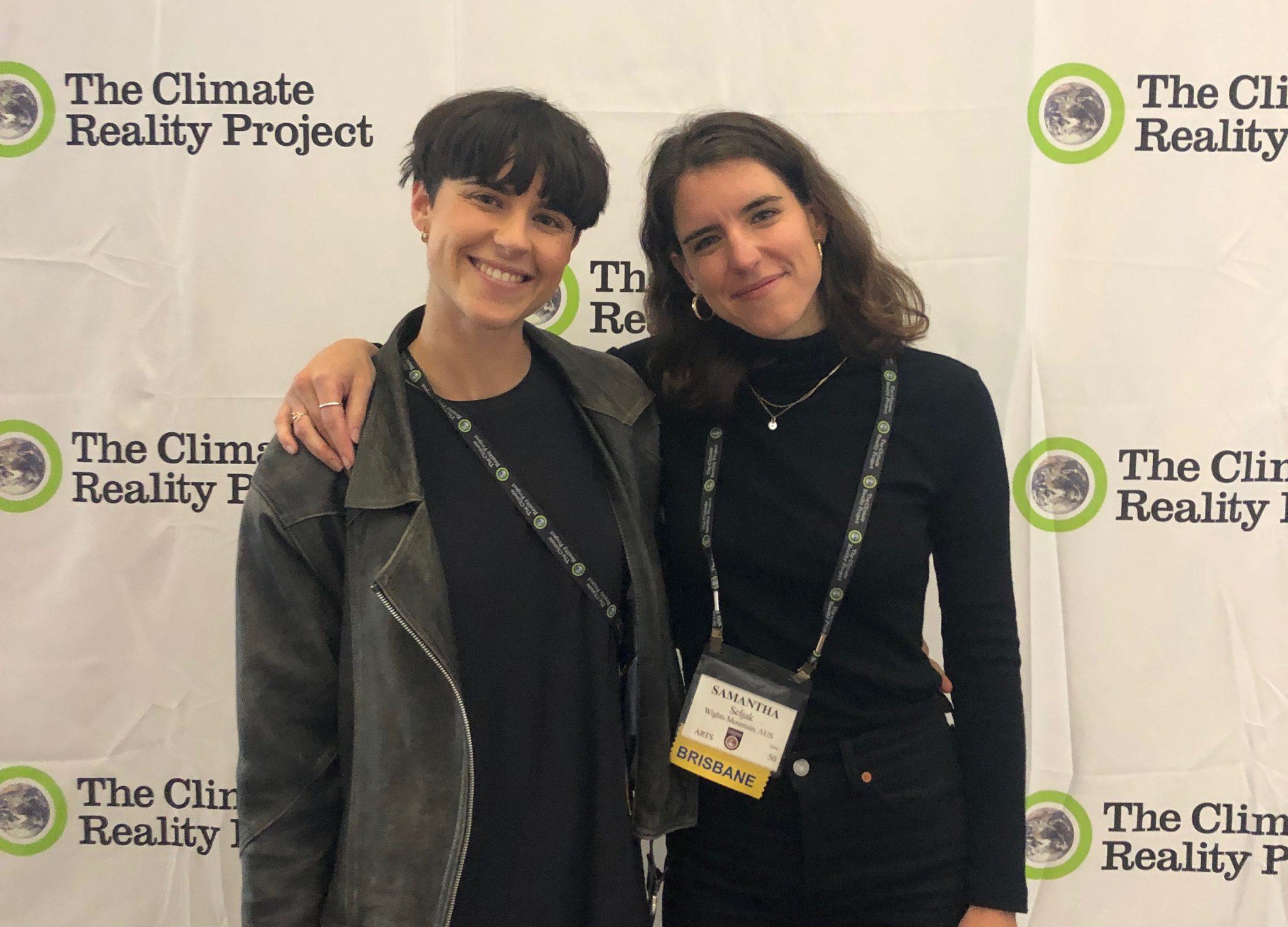
In February this year we co-hosted a panel at the Sustainable Living Festival focusing on how fashion can help limit global warming to 1.5 degrees. Since then, it’s become clear that we need to act on climate now by all means possible – it’s an emergency. The UK government has declared a climate emergency, local councils including Byron Shire Council, Yarra City Council and Fremantle City Council have declared it. The City of Sydney declared a climate emergency in late June and even more recently New York City declared their mission to achieve a carbon emissions-free future.
Human activity is estimated to have caused approximately 1 degree of global warming already, compared to pre-industrial levels. This number is likely to reach 1.5 degrees between 2030 and 2052. If it continues to increase at the current rate, it could reach an unlivable 5-10 degrees by 2100.
Eight of the 19 hottest years in the world’s recorded history were in the past 19 years, and the hottest five were the past five. Last year, 224 cities around the world set new heat records. Rising sea levels, floods, fires, heatwaves and droughts associated with global warming are already resulting in deaths and displacing communities.
The main cause of climate change is the burning of fossil fuels, yet 80 per cent of the world’s energy still comes from those fuels.
Torres Strait community leaders share harrowing stories of having to rebury their ancestors as rising sea waters encroach on the land. A community in Solomon Islands recently consulted scientists and engineers and deemed the risk so great they’re relocating from their island to the mainland, building an entirely new township.
The Lancet Medical Journal recently predicted that there will be 1 billion climate refugees by 2050.
The main cause of climate change is the burning of fossil fuels, yet 80 per cent of the world’s energy still comes from those fuels. The good news is, the world now invests more in renewables than in new fossil fuel generation. Half of China’s new capacity is renewable, as is 88% of Europe’s new capacity and 65% of India’s. The fastest growing job in US is solar panel installer and second fastest is wind turbine technician.
With vast space and heaps of sun, Australia has the capacity to be a renewable energy super-power itself. Which is good, because Australia is one of the countries most affected by temperature increases. In January 2019, 91 of the hottest 100 places on Earth were in Australia and we have the largest percentage increase of deaths attributable to climate change in the developed world.
We have all of the solutions at our fingertips to reach net zero emissions by 2050.
Australia’s national commitment to the Paris Agreement (26-28% reduction of carbon emissions on 2005 levels) is meagre and frankly, a threat to our future. The commitment has been outshone by our own cities, local governments and state governments, which are all stepping up to respond to the crisis. All states and territories (except WA) have committed beyond the federal commitment.
We have all of the solutions at our fingertips to reach net zero emissions by 2050. These include divesting from the fossil fuel industry and investing in renewable energy, reforestation and planting trees to capture carbon among many others. That’s the thing, if we really can transition to a net carbon world, we’ll have cleaner air, water and soil resulting in better health and wellbeing outcomes for many.
But we need to work quickly to stay ahead of ‘runaway climate change’ (the compounding effects of global warming, which are difficult to model for and are catastrophic).
As a small business who has been labelled by the UN Compact as a “Solution” to achieve the Global Sustainability Goals, Seljak Brand pursued its ongoing quest to be part of the global movement for climate solutions and recently attended Al Gore’s Climate Reality Training. Attended by experts from all around Australia and the South Pacific, The Climate Reality Project is part of Al Gore’s lifelong crusade to nurture climate activists, and it was bloody inspiring. Climate Reality empowers trainees with tools to shift policy and achieve climate justice, which is a transition to a net-zero emissions economy that is fair for all.
To continue the conversation on a hyper-localised level, we brought together a panel of experts in discussion at Brisbane’s Wandering Cooks called It’s A Climate Emergency, What Do We Do Now?.
We’ve synthesised our learnings so far to outline the best way individuals can tangibly contribute to reducing global warming. Some of these actions can be implemented tomorrow and some of them take time, but all of them will help respond to the crisis we’re facing.
VOICE
Use the power of language and right to free speech to demand climate justice. And as important as it is to speak up, it’s important to listen to others.
- Listen to First Nations peoples First Nations folks need to be at the forefront of the climate conversation. Australia is privileged to be home to the oldest living culture in the world, surviving millennia of climatic shifts (including an ice age with a 5 degree shift!) and colonisation. Aboriginal and Torres Strait Islander communities hold generations of wisdom of lands and waters and their management, as documented by Bruce Pascoe’s book Dark Emu. The same communities are also experiencing the effects of climate change more acutely and quickly than non-Indiginous communities. Being an ally means educating yourself and supporting where asked by the Indigenous community. Follow along the journey with these Indigenous-led climate movements:
– SeedMob
– Original Power
– Ghost Nets Australia
– And the many Land Councils nationwide e.g. Wangan & Jagalingou Family Council - Be civilly disobedient The knowing inaction of governments for decades has endangered our livelihoods, our homes and our health, not to mention our futures. Climate movement Extinction Rebellion has shown that employing non-violent direct action (as inspired by Mahatma Gandhi and Dr Martin Luther King and others) changes policy. It was their blocking of roads and bridges in London – with respectful police negotiations – that prompted the city, then many others around the world, to call a climate emergency. Although the effectiveness of declaring an emergency itself is being debated, the global hustle (and funding) seen at the declaration of World War II shows us how quickly our governments can act. Don’t underestimate the power of a placard!
– You can take to the streets come 20 September for the next School Strike 4 Climate
– A week of civil disobedience by Extinction Rebellion is beginning the week of 7 October in MelbourneNote: arrest as a tactic can be effective but is NOT an even playing field due to discrimination. Know the risks, your rights and legal implications before willing arrest. - Tell stories within your sphere of influence Identify where you have influence. Are you part of a sports team, a ceramics studio, a sharehouse, a workplace, a school…? Talk about climate change and action with the people in your communities. Learn a few key facts to frame the climate crisis as the reality where all people are affected (and probably share common values like health and family) rather than a false debate with two sides. Share the inspirational action that’s happening all around us with your friends and family, talking about the cool stuff going on rather than the story of doom and gloom. You never know who in your community will be spurred into action in part to your words and your courage.Make sure you feel safe when engaging folks who may find your stories challenging. Part of operating within your sphere of influence is asking others to support you when you speak up. Raising awareness is action.
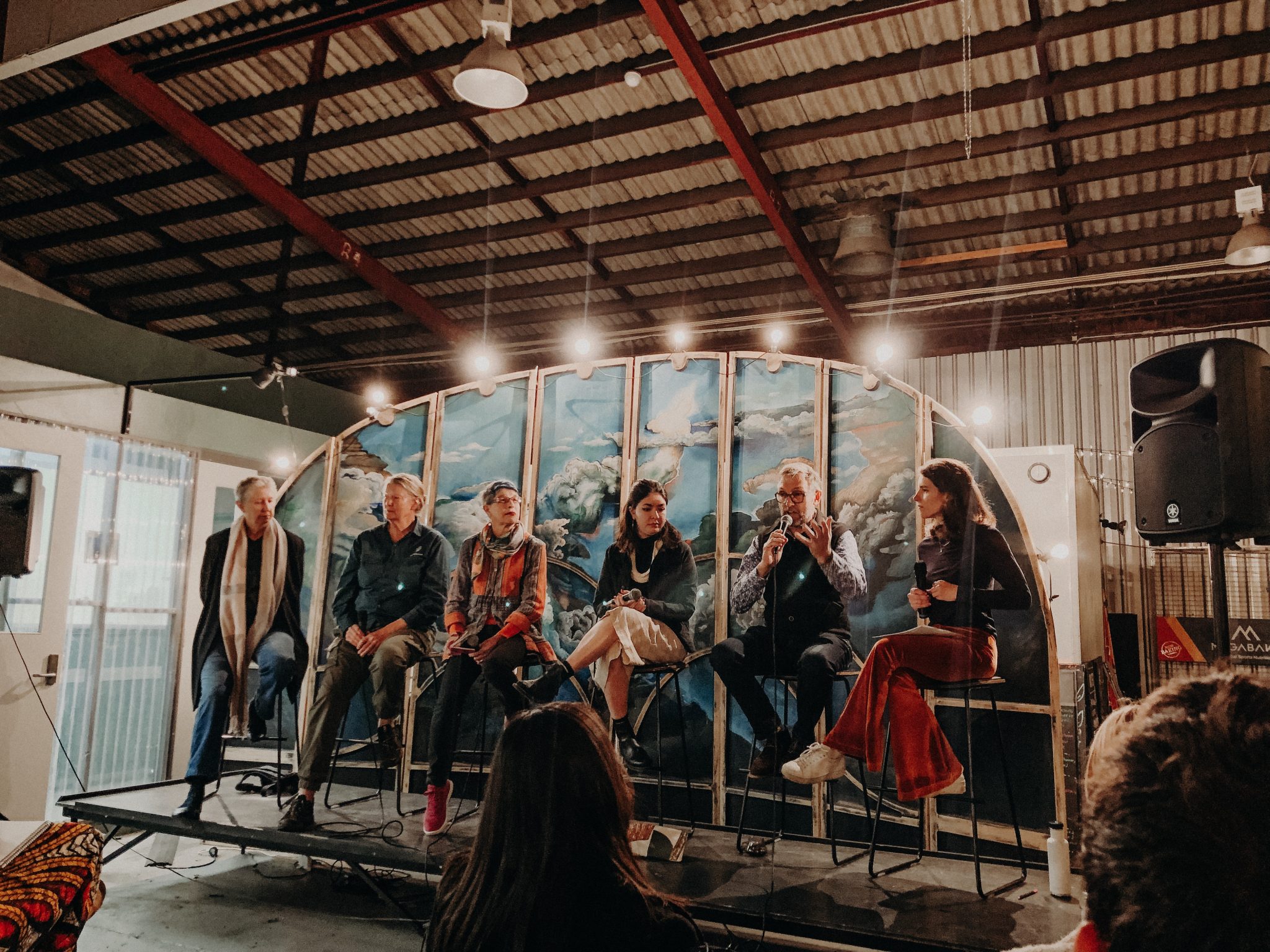
It’s A Climate Emergency panel discussion at Wandering Cooks. Photo: Kelley Sheenan
VOTE
You can engage local government even if you feel national leadership doesn’t represent you. Remember this is your right as a citizen (and your member wants your vote!).
- Lobby your local MP Find out what your local governments’ commitments are to the Paris Agreement and hold your MPs accountable so they do what they’ve said they’d do. Sydney, Melbourne and the ACT have joined Powering Past Coal, a 30-country alliance to accelerate the phasing out of coal-power. Australia is yet to join but you can encourage your local MP to join the movement too. Before an election is the best time to lobby government (dammit!). Here’s a directory to find your local MP.
– Meet with your MP to ask how they’re acting on climate. Meet with all the other candidates as well – and tell your MP you’re doing so.
– Send positive letters to MPs that are taking positive climate action! And letters of concern to those that aren’t.
– Call your MP and if you’re not able to have a conversation, they’re obliged to note down your call and why you’re making it.You do not need to be a climate expert to express your concern and ask what action is being taken. See some fantastic guidelines in The Climate Council’s Climate Action Toolkit (pg. 8) for approaches and templates for your calls and letters. - Vote for climate-aware parties Which parties’ climate goals align to the Paris Agreement? Find out their commitments and track record of climate action, like transitioning jobs from fossil fuels to renewables industries. Also note contradictory policies like funding to coal mines while committing to carbon emissions reductions (use these as topics of discussion for your lobbying efforts).
- Consider joining a political party Since the Federal Election, The Greens have seen a significant spike in new members. Exerting influence from within a party, and as aligned on shared values, is powerful. One of the most inspiring women we met at The Climate Reality Training was a Liberal member educating other party members about climate action.
CHOICE
The whole is made up of a sum of small parts. So even though what we need is systemic change, the choices you make in your daily life do make a difference. Reducing your impact generally means emitting less kilograms of carbon dioxide into the atmosphere by way of pollution, waste and so on. Changing how you spend your time and money sends a clear message to corporations and can inspire others to act too. There are lots of ways to act, so in the wise words of Paul Hawken, “do what lights you up”.
Do not judge yourself or others for not doing all the things – accept yourself and others for where they are today. The society we live in (built on colonisation, imperialism, patriarchy and capitalism) can make acting hard and expensive to do even some of the things.
Eat local food Engaging with the food you eat helps us understand our inextricable connection with and reliance on the natural world. You can buy local, ecologically grown and ethically sourced food from farmer’s markets. Farmer’s markets make a great friend date (and you can reduce your spending and food waste by sharing purchases) and are a great way to connect with growers.
Eat mostly plants There’s no doubt the animal agriculture industry is weighing heavily on our land and water systems. With the vegan movement in full force there’s more and more delicious animal products-free food available.
Plant trees Capture carbon yourself! If you don’t have a backyard, many local areas will have tree planting days and would love a helping set of hands.
Make stuff Fly in the face of capitalism completely and create! Get together with friends to make dinner. Draw a card, make a toy, make things you need and make things for fun. Repairing is making too.
Buy used stuff Hyper-consumption perpetuates the attitude that there’s infinite resources to consume and infinite space to fill with trash. There are so many ways to share and buy second hand things. There’s op shops, markets, Gumtree, Facebook Marketplace, Freecycle, there are tool libraries and book libraries (don’t forget those!) and more.
Support social enterprises Small businesses and social enterprises are super important for innovation and industry disruption. They tend to reflect more accurately what’s needed in the community. The big corporates always follow and copy because they’re so cool.
Invest by your values What are your big chunks of money doing? For many Australians this will be their superannuation or savings account, or it might be shares or property. You have the power to divest from companies that support industries that harm the environment and invest in things that support the transition to a cleaner economy and healthier society. Search ‘ethical investing’ to find options that align with your values.
Use renewable energy If you can install solar yourself, we’re jealous. Otherwise, check what utilities providers offer renewable energy if you have power over your own energy source.
Ride, drive and fly smarter Our infrastructure is built around driving so it can be hard not to, but ride a bike if you can, if you enjoy it and it feels safe (plus, exercise!) or take public transport (commuting was obviously designed for podcasts). Flying emits a ridiculous amount of carbon dioxide into the atmosphere. Because so many of us have family overseas and travel allows us to experience other cultures and develop empathy for our differences, it’s a tough one. Use a carbon calculator and offset your emissions with the various organisations out there (these programs are basically supporting tree planting and other carbon sequestration activities) but be aware of the limitations of these programs, and even your own clicktivism!
SPIRIT
Climate change is but a symptom of a deeper cause which requires a fundamental shift in our thinking and way of being. Before we look to our own homes and operating in our sphere of influence, we as individuals must come back to our own state of consciousness. It is from a place of acceptance that we can reconnect with land and each other and make the shift away from seeing people as separate to, and therefore entitled to take from, nature and each other. Making time to tune into your own being requires a bit of discipline in our highly distracted society – some finding useful meditation, bush walking, dancing, insert your flavour here – to find ‘the space between words’ (beautifully articulated by Mark Allen in his Holistic Activism approach) and ultimately the interconnectedness of all things.
The power to act is both with you and beyond you. If you have the ability to act, act, but it’s not only your responsibility. There is no sustainability without self-sustainability, which means to remember to take care of yourself. Rest. Process your emotions (some variation of grief, fear, anger, sadness will probably come up). Connect with other groups working to create change for support as well as inspiration. Celebrate the tiniest of wins and the beauty of life as you act. Resilience is as important as courage in the journey of change, and that comes from the practice of LOVE.
WORDS BY KARINA SELJAK AND SAM SELJAK; COVER ARTWORK BY JO WOOLLEY AT @BEACHDONTKRILLMYVIBE
JOIN OUR MAILING LIST
Brighten up your inbox with our not-too-frequent emails featuring Peppermint-related news, events, competitions and more!
explore
More articles
It’s beginning to look a lot like Christmas…. Which means we are officially entering party season. Work parties, friend-dos, family get-togethers and then we’re straight into New Year festivities. If you’re lucky enough, you might be staring down the barrel…
Look, I don’t want to make anyone panic but IT’S DECEMBER!!! If you’re planning to give homemade gifts, you’re going to have to act fast. …
Furred, feathered, fishy, scaled… The pets we choose are as diverse as our personalities. (And apparently, quite often we resemble each other.) But they all…
When you hang a painting on a wall, the story stays put. But when you wear a beautifully made garment that may as well be…
Hang out with us on Instagram
“We love that we can bring a hint of imagination and whimsy into everyday life by making ordinary objects fun. We’ve learned to appreciate the little wins and to take a moment for each step we achieve.”
Disillusioned by the realities of fast fashion, design grads Emily May and Sidonie Moore ditched clothing for a business that finds fun in the everyday. Enter @TheNonsenseMaker: a collection of unique homewares, fun wall art, greeting cards and more that breathe life into Emily’s illustrations: “I love the idea of taking real-world objects and changing your perspective in a way that brings magic and whimsy into everyday life!”
In issue 64’s feature ‘It all makes sense’, we chat to the Naarm/Melbourne-based duo about their sustainability philosophy, TV re-runs and their commitment to local makers. At stockists now!
Photos: @MeAndMyGirl
#PeppermintMagazine #TheNonsenseMaker #LocalMakers #SustainableCraft

Any New Year’s resolutions on your list? We love this from @OtterBeeStitching - “be brave enough to suck at something new”.
There’s no points for perfection, but you’ll get a trophy for trying. If nothing else this year, take the leap and try something new.
#OtterBeeStitching #Embroidery #BeBrave #TrySomethingNew #EmbroideryArt

Sunday serving suggestion ☀️
Gorgeous photos from @JolieFemmeStore - who make sweet garments from vintage bedsheets.
#PeppermintMagazine #SlowSunday #SwitchOff #Unplug #ReadAMagazine

A toast to the old you 🥂
We wholeheartedly love this post from the brilliant @EmilyOnLife:
“2026: Reinvent, burn it down, let it go (whatever it is). Year of the Snake it up. Exercise your boundaries, exercise your body, take one teeny step every day towards a life that feels better to be in.
But don’t you dare shit on your old self while you do it.
Hold yourself with reverence and tenderness and respect, because you got you this far. You did your very best with the information and tools you had at the time. You scraped yourself together, you made it work, you survived what felt impossible to survive: again and again and again.
You are perpetually in the process of becoming, whether you can feel it or not, whether or not you add it to your 2026 to-do list.“

Some very wise words from @Damon.Gameau to take us into 2026 🙌🏼

⭐️ We made it!!! ⭐️
Happy New Year, friends. To those who smashed their goals and achieved their dreams, and to those who are crawling over the finish line hoping to never speak of this year again (and everyone else in between): we made it. However you got here is enough. Be proud.
It’s been a tough year for many of us in small business, so here’s to a better year in 2026. We’re forever grateful for all your support and are jumping for joy to still be here bringing you creativity, kindness and community.
We’re also excited to be leaping into the NY with our special release sewing pattern – the Waratah Wrap Dress!
How great are our fabulous models: @Melt.Stitches, @KatieMakesADress and @Tricky.Pockets - and also our incredible Sewing Manager @Laura_The_Maker! 🙌🏼
Ok 2026: let’s do this. 💪🏼
#PeppermintWaratahWrapDress #PeppermintPatterns #SewingPattern #MeMade #WrapDress #WrapDressPattern














